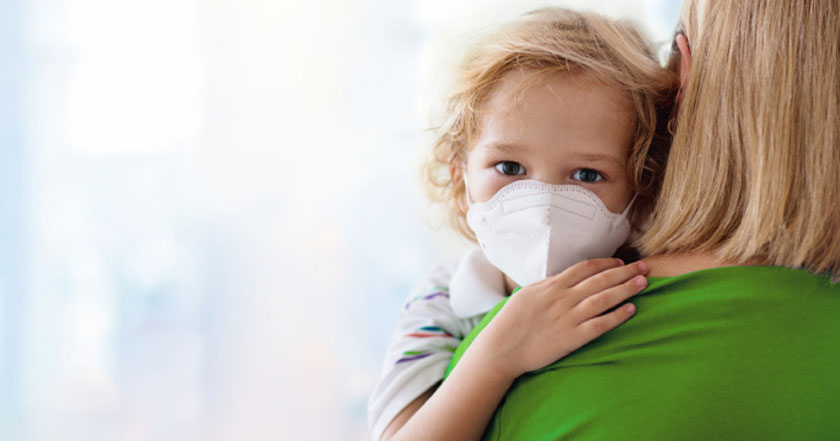
The flu. COVID-19. And now, RSV.
RSV cases are surging this fall, rapidly filling hospital beds across the country. (Sound familiar?) As we enter the peak of flu season with new COVID-19 variants still emerging, health experts fear that hospitals will be overloaded in the coming months. Here in Pennsylvania, pediatric hospital beds are already 79% full.
The flu, COVID-19, and RSV share many symptoms, so it can be challenging to tell one virus from another. vybe is here to educate you on what RSV is, what to do if you’re infected, and how to protect yourself and your family.
Respiratory syncytial virus (RSV) is a common virus that infects the lungs and respiratory tract. Most children are infected with RSV by age two, but older children and adults can be infected as well.
It takes a week or two for most people to recover from RSV. However, the virus can cause severe, life-threatening complications in others.
RSV symptoms are usually mild and mimic the common cold, such as:
Children infected with RSV almost always show symptoms, while many adults do not. For young infants under six months of age, the only symptoms of RSV infection may be:
Infants, children with asthma, older adults (especially those 65 years and older), and people with heart disease, lung disease, or a weakened immune system are all at risk of severe complications from RSV.
For instance, RSV can lead to bronchiolitis (clogged small airways in the lungs) or pneumonia (inflamed air sacs in the lungs), two dangerous conditions that affect breathing. RSV is the number-one cause of both conditions in children under the age of one in the United States.
Like the flu and COVID-19, RSV is spread through respiratory droplets and is highly contagious. RSV can spread when:
Children are often exposed to and infected with RSV at places like schools or daycare, then bring the virus home and transmit it to other family members.
People with RSV are usually contagious for a week or less. But some at-risk people, including infants, can continue to spread the virus for as long as four weeks – even after they stop showing symptoms.
So, why the sudden rise in RSV cases? The COVID-19 pandemic is likely to blame. Many children and adults were not exposed to RSV amid lockdowns and social distancing, reducing our general immunity to the virus.
This year, RSV began circulating in the summer instead of the winter, surprising doctors and parents alike.
Health experts are concerned that with the flu, COVID-19, and now RSV in the mix – creating the “tripledemic” – our nation’s hospitals will soon be back in crisis mode. With winter quickly approaching, all three viruses are expected to surge. We have vaccines for the flu and COVID-19, but no vaccine for RSV.
Thankfully, there are things you can do to prevent RSV and protect yourself and your family.
Is there a baby in your home? Because infants are more susceptible to RSV, be sure to:
It’s hard to distinguish RSV from the flu, COVID-19, or even a simple cold – especially at first. Visit vybe today to confirm your diagnosis and get a treatment plan.
All vybe centers have licensed medical professionals with a wide range of healthcare knowledge. We currently offer testing for flu, strep, COVID-19, mono, and more. It’s best to seek medical attention sooner rather than later, especially if you or your family members are at greater risk for RSV complications.
Once we have your test results, antibiotics may or may not be prescribed. (Antibiotics only fight bacterial infections, not viral infections like RSV.) Your vybe provider can check your lungs for any signs of bronchiolitis or pneumonia. RSV patients who are having trouble breathing may need to go to a hospital for IV fluids, oxygen therapy, or mechanical ventilation.
Wondering what your stuffy nose, cough, and sore throat mean? With vybe, you don’t have to wonder anymore. Everyone deserves great healthcare, and that includes giving you the answers you need – fast.
With 10+ urgent care centers throughout Philadelphia, vybe is here when you need us most. We’re open seven days a week with extended weekday evening hours for your convenience. Walk-ins are always welcome, or you can make an appointment. Find a location today!
FIND YOUR VYBE